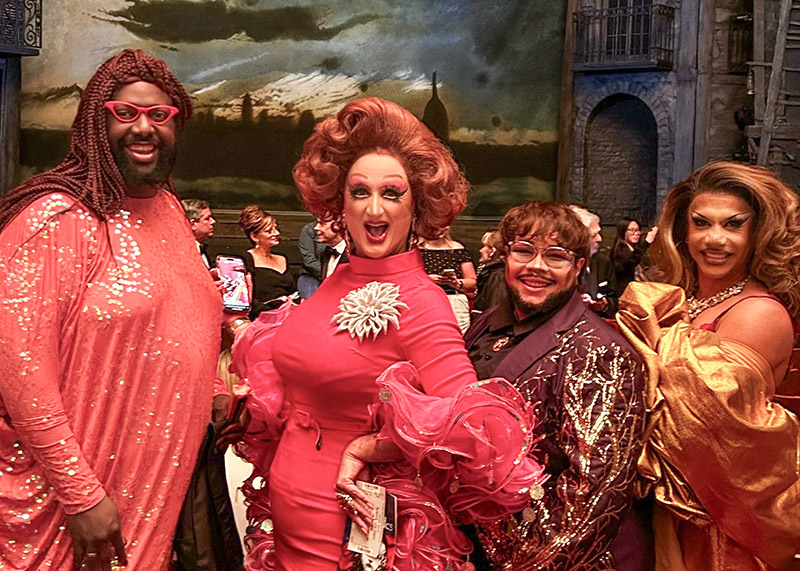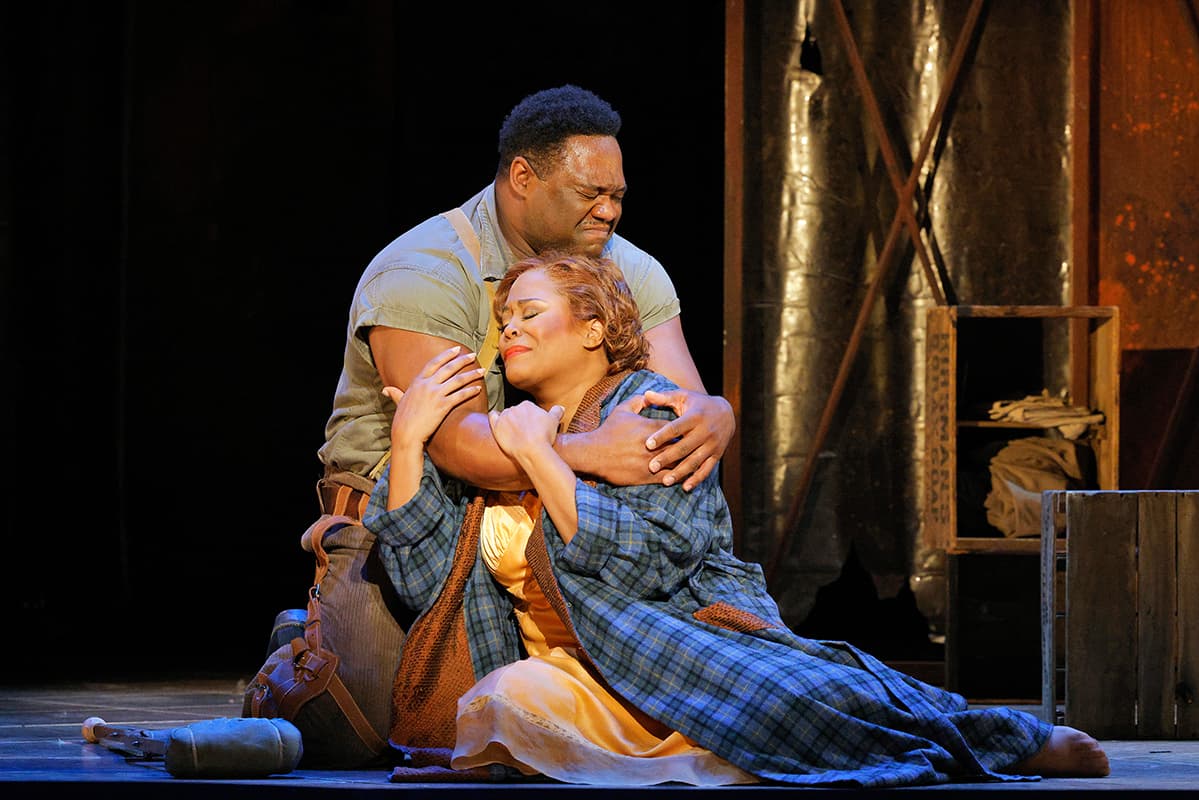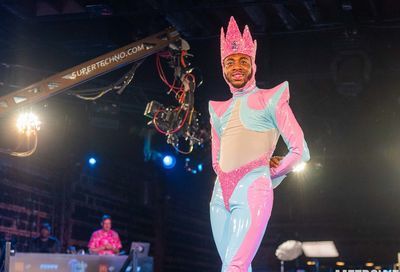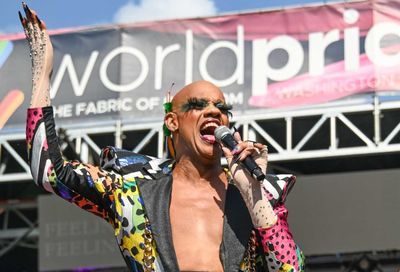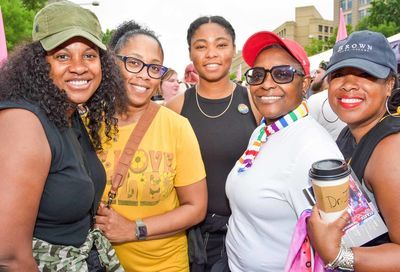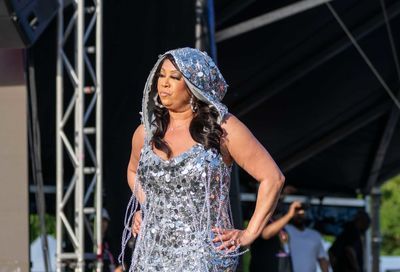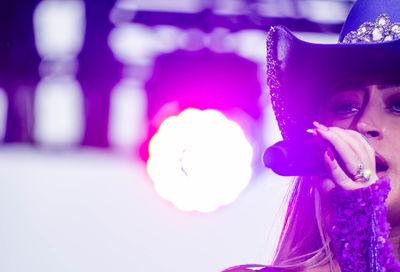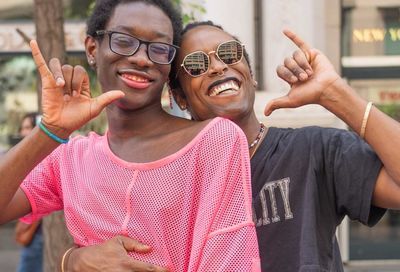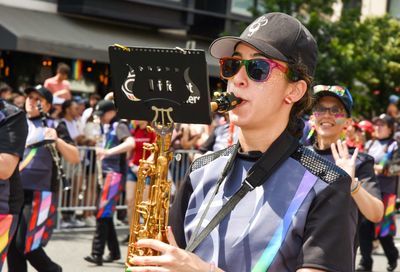Pipe Dreams
Flamboyant international organist Cameron Carpenter has garnered as much attention for his skills as for challenging tradition
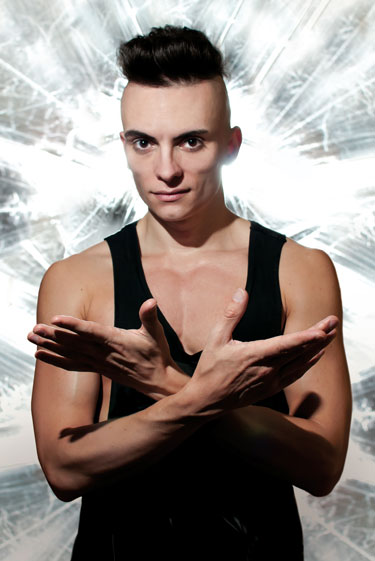
Cameron Carpenter
(Photo by Todd Franson)
MW: Because you take influence from all aspects of living?
CARPENTER: I guess. And I think also in my case as a performer, you are exhibiting yourself. It doesn’t de facto mean that you’re an exhibitionist. But it does mean that you have to be comfortable being naked in some way — in some abstract way. A concept which would be not at all out of place for a dancer. Or certainly for an actor. But in classical music we tend not to think about it in those terms, or talk about it in those terms, even though, as it turns out, a good performance does demand just as much demonstration of yourself. And I think if you’re out of sync with your identity, or especially if you’re inhibited in any way, it can interfere with good performance.
MW: So just to press the point a little more, you would say that you’re comfortable with both genders?
CARPENTER: I would say that I need both genders, even more than being comfortable. I’m certainly comfortable with my identity and my existence as a sexual human being, which is no different than that of any other sexual human being. But as a person who is within a field which is still rather traditionally conservative, that gets some attention. And maybe it should. You know, we’ve spent so many hundreds or maybe thousands of years to some degree running away from those things. It’s not my job to continue that running, you know. I want to run in a different direction.
MW: Are you in a relationship now?
CARPENTER: I’m not. I travel constantly. I can’t even have a cat. [Laughs.]
MW: You mentioned Leonard Bernstein, who was clearly an influence though he wasn’t an organist. How much have famous organists of the past influenced you? How much are you trying to carry on their legacy?
CARPENTER: I’m not interested in carrying on any legacy of organists of the past. It wouldn’t be for me to say to what degree I’ve been influenced. But I consider myself not to have been influenced. And lest that seem an arrogant statement, the reason I say that is that for my entire life my instinct has been somewhat, not to isolate myself, but to be apart from the organ community.
There’s often thought to be a certain value to have a certain degree of removal from the community within which you’re working, so that you are always sure to maintain an artistic independence from what others are doing. In the case of the organ, I think that’s incredibly important, partly because so much of what is regarded as ”traditional” in the organ, just as in classical music, what we really mean is the 1950s. And it really remains the 1950s to some degree that other organists seem to idolize. To me that’s a somewhat repellant thing. I really don’t need to hear anything more about Virgil Fox’s audiences, when you stop to remember that most of Virgil Fox’s audiences probably were as racially diverse as a loaf of white bread. Let alone the tales of the great organists like Edwin Lemare from the 1910s and ’20s, who played for massive audiences at the World’s Fair and so on. Massive audiences that again included remarkably few women — women who wouldn’t have been able to vote. Gay men who wouldn’t have been able to express themselves in public. And so on and so on. All the desultory details.
Again, there’s so much about the organ and the organ community that really is looking to the past. I find that a kind of love affair with death. The idea of traditions that seem to be conventionally held quite dear have almost nothing to do with the factitive of 200 years ago. They have to do with how music of 200 years ago was interpreted in the 1950s and ’60s, and this is completely uninteresting.
There are lots of other figures that I could point to as influences, but we would have to go outside the realm of music. Someone like Susan Sontag has been an enormous, enormous, incalculably important influence to me. As has the music of Kate Bush, Laura Nero, Annie Lennox, but also people like the fashion illustrator Antonio Lopez. Obviously Jean Cocteau. Many other figures, people whose work and whose approach to their fields is something that I’ve studied carefully.
MW: That raises a question I have about your future. In a 2009 New York Times profile you said you didn’t see yourself becoming ”a grand old man of the organ.”
CARPENTER: [Laughs.] I still don’t. Even though I am getting older, I’m not getting any grander.
MW: But 20 years from now, do you have any sense of what you might be doing? Or what you would like to be doing?
CARPENTER: No, I don’t. I think that part of the phenomenon of being an artist now is that time moves very much faster. I feel like one of the strengths of being an artist in the 21st century is being adaptable.
It’d be really, really great to be able to do something that would actually have a tangible, emotional impact on people much, much younger than me. I suppose that’s one of the things that I’m most interested in. I view my own history as instructive there, because I grew up in a situation where it was very hard for me to get to an organ. I lived in rural Pennsylvania, and the organists of the local town were a great object lesson in what awaited with the organ community in general. They were extremely jealous, extremely protective of the mediocre instruments that even existed there. And they were generally not willing to be really helpful to a young talent. That situation probably still exists in most places. Despite life changes maybe in the last 15 years, I’m sure there’s still a lot of work to be done to help great, great talent to emerge in the organ in the way it has flourished in the violin and the piano in the last years.
I mean, you look at the violin and the piano, and you immediately see that these are standardized instruments. An instrument in Austria is the same as an instrument in Australia, to a great degree. And it means that there’s a standard that can be observed internationally, the world around. And then there’s also sort of familial or fraternal unity between the people playing those instruments. That does not exist in the organ, and I think that it could be built. It depends a lot on the instrument itself. And that’s something I’d like to do.
Support Metro Weekly’s Journalism
These are challenging times for news organizations. And yet it’s crucial we stay active and provide vital resources and information to both our local readers and the world. So won’t you please take a moment and consider supporting Metro Weekly with a membership? For as little as $5 a month, you can help ensure Metro Weekly magazine and MetroWeekly.com remain free, viable resources as we provide the best, most diverse, culturally-resonant LGBTQ coverage in both the D.C. region and around the world. Memberships come with exclusive perks and discounts, your own personal digital delivery of each week’s magazine (and an archive), access to our Member's Lounge when it launches this fall, and exclusive members-only items like Metro Weekly Membership Mugs and Tote Bags! Check out all our membership levels here and please join us today!








